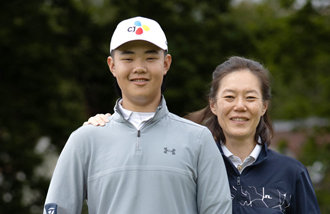[Opinion] Dictators and Statues
Dictators have propensity for building statues, the history shows. When their regimes end, the statues then become a subject of mockery and humiliation. It happened to the statues of Lenin and Stalin when the communist system in former Soviet Unions and Eastern Europe collapsed about a decade ago. And it happened to the statue of Iraqi President Saddam Hussein in Baghdad two days ago. They say that history repeats itself. The collapse of a dictator`s statue indicates, then, the beginning of a new era after dark years.
Statues carry a symbolic political meaning. Dictators justify and glorify their regimes through statues, which is called `miranda` in political term. Magnificent buildings, beautiful sculpture and collective ceremonies are a means of distorting public sentiment and displaying their power. Without public support, however, their regimes cannot last forever under the disguise. Dictators themselves should have known that such efforts to promote loyalty only lead to a tragic end of their ruling.
It was the statute of president Lee Seung-man that became a subject of mockery in this country. It was towed away by people after the April 19 revolution in 1960. Some civic organizations broke down the statue of president Park Jung-hee built in Munrae-dong, Seoul. The collapse was a sad part of our history and an end of the `statue age.`
Kim Il-sung and Kim Jong-il are second to none when it comes to building a statue. It is said that there are some 35,000 statues of the father and the son. It is sin for leaders to care more about statues than their starving people. The North Korean regime must learn the lesson from the history of statues. Am I the only one worrying about the costs of breaking down all the statues in North Korea when the regime finally collapses? I remember that West Germany injected not a little amount of money into clearing the Lenin Statue standing in East Berlin.
Song Moon-hong, Editorial Writer, songmh@donga.com





